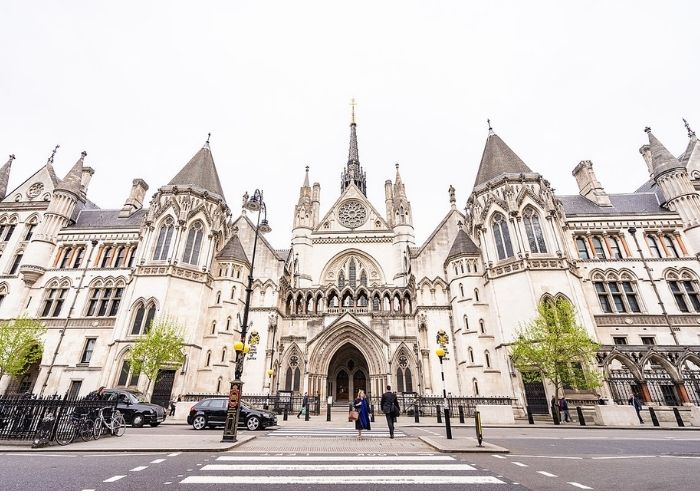LONDON – On Monday and Tuesday, the trial of Juan Carlos I was heard at the Royal Court of Justice in London. The defence of Emeritus King Juan Carlos I assured that the king-emeritus enjoys immunity. And, furthermore, that the British judiciary should not rule in the case brought by Corinna Larsen.
In the court case, the former girlfriend of Juan Carlos demanded compensation from the king emeritus. She incurred costs for her medical and psychological treatment, for implementing ‘personal security measures and daily protection’. And also for hiring ‘ex-diplomats and former government officials’ who intervened to ‘end to the intimidation’ of Juan Carlos I. According to Larsen, this alleged intimidation undermined her safety and that of her children. She cites a payment of €65 million she allegedly received from Juan Carlos. This seemingly came from a donation from the late King of Saudi Arabia. According to Larsen, this fortune ended up in a Swiss account that was linked to a foundation that enjoyed tax advantages in Panama and of which Juan Carlos I was the beneficiary.
What does the defence of Juan Carlos argue?
The defence of the former king also put forward arguments in a 26-page text denying all Larsen’s accusations. The lawyer also insisted that the Spanish Supreme Court is the competent body to deal with any cases concerning events related to the monarch after his abdication.
Three immunity issues
According to the lawyer, ‘there are at least three immunity issues that are relevant’ in this case. During the preliminary hearing, he defended the fact that Juan Carlos I is a member of the Royal Household. And he, therefore, invoked the Law on State Immunity, adopted in the United Kingdom in 1978. This applies to the monarch and the members of his family who are members of the Royal Household.
According to the defence, this case applies to King Emeritus,’ in his capacity as a senior member of the Spanish Royal Family and the Spanish Royal Household. Therefore, he is entitled to immunity from the jurisdiction of the British courts. Furthermore, this includes in respect of the claims raised in these proceedings’.
The lawyer further specified that this immunity ‘does not place His Majesty above the law’. But rather ‘recognises that, given the constitutional nature of His Majesty’s office, he is properly subject to the jurisdiction of the Supreme Court of Spain and only of the Supreme Court of Spain’.
‘It is not in the public interest of the UK and its courts to try the allegations against His Majesty. Nor can it be,’ the defence added.
Constitutional recognition of monarchies
As part of his defence strategy, the lawyer also argued that it is in the public interest to ‘protect the dignity of the King and close family members’. In this context, he referred to the case law of the British courts. And he recalled this has been ‘explicitly recognised’ by the British judiciary in the case of Queen Elizabeth II and close members of the British royal family.
He stressed this ‘constitutional recognition’ applies to the British royal family. Furthermore, it has been recognised by the UK for centuries with respect to monarchs and close members of the royal families of other monarchies.
‘It is the cornerstone of the principle of sovereign immunity,’ he said. And added that in the case of Spain, this recognition is reflected in more than a 400-year-old treaty of engagement signed by the ancestors of Queen Elizabeth II and Juan Carlos I in the Treaty of Utrecht in 1713.
Where will Juan Carlos celebrate Christmas?
An investigation into the former king is also underway in Spain. Juan Carlos had hoped that his status as a suspect would end just before Christmas. However, the public prosecutor has decided to extend his investigation by six months. It has done so because some of the international documentation still has to be studied. However, it has been known for months the emeritus king wanted to return to Madrid to celebrate the holidays with his family. Whether that happens remains to be seen.
Spanish government is not commenting on a possible return
Minister of Territorial Policy and government spokesperson Isabel Rodríguez, limited herself to praising the ‘transparency’ and ‘good functioning’ of the Royal House under Juan Carlos’ son, King Felipe VI. Despite repeated requests, she did not reveal more than this. In any case, the decision will be taken by Felipe VI, in consultation with the government. A year ago, Pedro Sánchez spoke of a ‘roadmap for the modernisation’ of the monarchy. He also noted Felipe VI was ‘ready’ to carry out the project. ‘However, economic recovery is now the priority,’ Rodríguez concluded.


